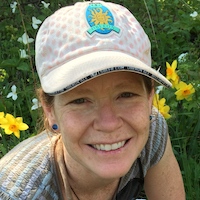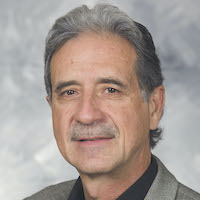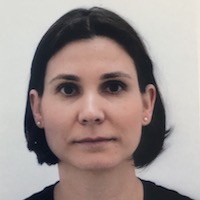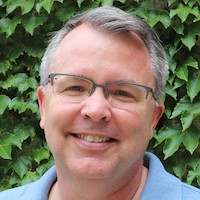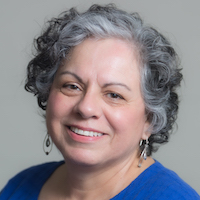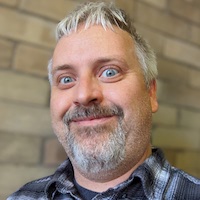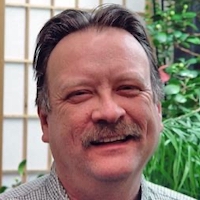2021 Academic Staff Excellence Awards
Each year, UW–Madison honors nine academic staff members for their achievements and dedication to excellence. This year’s recipients are gifted teachers, award-winning researchers, skilled administrators and passionate mentors — all working harder than ever to help the university navigate a pandemic. The following nine employees will receive 2021 Academic Staff Excellence Awards during an invitation-only virtual ceremony.
Chancellor’s Hilldale Award for Excellence in Teaching
Janet McCray Batzli
Interim Director, Distinguished Faculty Associate
Biology Core Curriculum Program (Biocore)
An innovative teacher and inspiring mentor, biologist Janet Batzli is known for shaping the entire lives of UW–Madison students, not merely their academic performance.
Her contributions on campus over the past 19 years span the gamut of pedagogy, from instruction of students in indoor and outdoor classrooms to student mentoring, curriculum development, faculty instruction and research on instructional methods.
The focus of many of these activities has been Biocore, UW–Madison’s highly regarded honors biology program for undergraduate students. Batzli creatively uses the Biocore Prairie in the Lakeshore Nature Preserve to introduce students to hands-on ecological field work, often leading to a paradigm shift in their thinking. Students show great appreciation for her enthusiasm and knowledge, consistently rating her courses excellent.
Batzli also is a leader in innovative community-based learning. After realizing that many students begin Biocore challenged by its rigor, she launched efforts to smooth their way, including the Biocore Peer Mentor, Biocore Peer Advisor, and Undergraduate Teaching Assistant programs.
Batzli’s role in instruction extends far beyond Biocore. She co-led the conception and development of the Madison Teaching and Learning Excellence professional development program, which has mentored more than 230 early-career faculty members over the past decade. Nationally, too, she is a sought-after expert, respected for her knowledge of teaching methods and experience in applying those methods to classroom instruction.
Chancellor’s Award for Excellence in Service to the University
Alberto M. Vargas
Associate Director, Faculty Associate
Latin American, Caribbean, and Iberian Studies program
In the 16 years that Alberto Vargas has been associate director of the Latin American, Caribbean, and Iberian Studies program, the center has gained a new presence on campus, engaging with a variety of campus initiatives and bringing together a vibrant community of scholars concerned with the region.
Under Vargas’ leadership, the center has become a place of rich intellectual life, fascinating programming and outreach driven by the needs of K-12 teachers and the Madison community. It has also become a center with a global reputation — a hub of international exchanges on Latin America.
It is a center that is inclusive, open to debates on pressing issues, and always invested in justice, equality and human welfare.
“These are Alberto’s values, and they became the foundation of our center’s excellence,” says Kata Beilin, a professor in the Department of Spanish and Portuguese and the center’s faculty director.
Vargas’ leadership role in Latin American studies goes beyond UW–Madison. In 2014-16, he served as president and as a member of the executive committee of the Consortium of Latin American Studies Programs, a national organization.
Of special note is the time and effort Vargas has invested in developing working relationships with educational institutions in Native American nations, particularly the College of Menominee Nation. And his work with the Environmental Conservation program at the Nelson Institute for Environmental Studies draws especially high praise.
Chancellor’s Award for Excellence in Research: Independent Investigator
Pelin Cengiz
Associate Professor (CHS), Pediatric Critical Care Medicine
Department of Pediatrics
UW School of Medicine and Public Health
In her groundbreaking research, Pelin Cengiz studies hypoxic-ischemic brain injury, one of the leading causes of illness and death in children and an area with a paucity of effective treatments. Specifically, she looks at the sex differences in developmental brain injuries of the very young.
Cengiz’s scientific inquiries are informed and motivated by her experiences caring for critically ill children, while her innovative research program addresses one of the most important and understudied areas of children’s health. She is, her colleagues say, the model for what a clinician-scientist should be.
Cengiz’s pioneering work has opened up an entirely new line of research in pediatric discovery, making her an internationally known expert in the field. Her research has been published in high-impact journals, presented at numerous international meetings, and honored with major awards.
Beyond her novel research, Cengiz has demonstrated exceptional leadership and team-building skills, bringing together a multidisciplinary team of investigators to conduct her project, and lending her expertise to numerous studies by other investigators. Her commitment to mentoring the next generation of physicians and scientists, with a particular focus on addressing issues of equity in sex, gender and socioeconomics, is especially inspiring.
Always one to go above and beyond, she stepped up during the pandemic to lead the children’s hospital workgroup on developing guidelines for the treatment of acute COVID-19 in children.
Chancellor’s Award for Excellence in Research: Critical Research Support
Steven T. Cook
Researcher
Institute for Research on Poverty
Steven Cook excels in a crucial role at UW–Madison, one that combines his talents as an exceptional analyst, an adept statistical software programmer, and a skilled facilitator.
For more than two decades, Cook has supported all aspects of the mission at the Institute for Research on Poverty, producing rigorous research, training scholars, engaging with policymakers and practitioners, and widely disseminating evidence to advance the understanding of the causes and consequences of poverty.
Cook supports the applied research of faculty affiliates working with state and local agencies to address real-world problems. He has authored or co-authored more than 50 reports and articles and presents his research widely in both academic and policy forums. He has exemplified the Wisconsin Idea through his work with Wisconsin state agencies and service on Legislative Council and State Court advisory panels.
As the institute’s data sharing coordinator, his expertise is especially apparent in the success of the Wisconsin Administrative Data Core, which integrates data from many state agencies and is considered one of the richest resources of its kind in the country. Cook has collaborated to develop and continually grow this collection — to date, it has supported more than $80 million in extramural research funding. These contributions have played a key role in the institute’s successful application to become the nation’s sole National Poverty Research Center — a $10 million, multi-year designation.
Chancellor’s Award for Excellence in Leadership: Individual Unit Level
Kim Marie Beld
Director, Business Services
Department of Orthopedics and Rehabilitation
UW School of Medicine and Public Health
When COVID-19 hit campus last year, Kim Beld quickly mobilized key leaders at the Department of Orthopedics and Rehabilitation. Within 24 hours, she’d helped put together the first of many plans to address a range of possible scenarios, from restricting elective surgeries to consolidating clinics and implementing telehealth — all while needing to maintain safe patient care under rapidly changing circumstances.
It was another example of Beld’s peerless skills as the administrator of a large, complex department. Since 2008, Beld has excelled in organizing, guiding and supporting the 200-plus faculty, staff and clinical providers with whom she works.
Co-workers describe Beld as a nimble problem-solver, someone unshakeable under pressure and able to toggle effortlessly between day-to-day tasks and big-picture visioning. She approaches her work with compassion, infectious energy, and a collaborative attitude that brings out the best in others.
Beld has been instrumental in many of the department’s successes, including achieving a Top 25 ranking by U.S. News and World Report when previously unranked, growing a productive philanthropic program with gifts exceeding $6 million since its 2010 inception, and, among the most notable, increasing representation of female orthopedic surgeons on the faculty from 0% to 24%, one of the highest percentages in the nation.
“Of course, these achievements involved the work of many, but Kim’s leadership was critical from conception to execution,” says Professor Thomas Zdeblick, M.D., the department’s chair.
Chancellor’s Award for Excellence in Leadership: College, School, or Larger University Community Level
Manuela Romero
Associate Dean for Undergraduate Affairs
College of Engineering
For many years, the College of Engineering used a two-step admissions process that left many frustrated. After two years of courses, some pre-engineering majors would learn that the programs they’d hoped to get into were not available to them.
Manuela Romero played a pivotal role in developing and implementing a new system in 2015 that allows first-year students to be admitted directly to the engineering department and the major they choose. The change has been hugely successful, boosting engineering retention rates, improving student satisfaction, and significantly increasing the number of women pursuing engineering degrees.
Romero’s work on the project captures her leadership excellence — a skillset that has consistently improved the success and well-being of students across the entire campus and even beyond UW–Madison. A hallmark of this leadership is a commitment to diversity and inclusion; she consistently and comprehensively integrates an equity lens into all aspects of her work and achievement.
One effort she led, training for faculty and staff in the College of Engineering called “Breaking the Bias Habit,” is now used by many other units, departments, schools and colleges on campus. Romero recognized the need to offer participation incentives and was instrumental in developing them. As a result, the college has seen a participation rate of more than 85% among faculty and almost 60% among staff.
Robert and Carroll Heideman Award for Excellence in Public Service and Outreach
Tom Zinnen
Biotechnology Policy and Outreach Specialist
UW Biotechnology Center
For three decades, Tom Zinnen has led outreach activities at the Biotechnology Center and with the Division of Extension, sharing science with residents of all 72 Wisconsin counties and welcoming tens of thousands of people to campus to explore science.
Colleagues marvel at his passion for science outreach and his ability to fill so many roles. As a teacher, he’s adept at making complicated concepts understandable and exciting to all ages. As a leader, he’s masterful at managing the university’s online science outreach portal and overseeing the BioTrek Public Outreach Program. As an innovator, he’s the host and one of the originators of Wednesday Nite @ The Lab, the weekly lecture series on PBS Wisconsin that brings the latest UW–Madison research to the public.
Zinnen is a guiding force behind the Science Alliance, the group that sponsors the annual Science Expeditions campus open house. He also served in Washington as a congressional science fellow in 2001-02 and as a speechwriter for the director of the National Science Foundation in 2008-10. Most recently, Zinnen and his colleagues launched a program to help UW faculty and staff from diverse backgrounds share science with underserved communities.
During COVID-19, Zinnen and his colleagues pivoted quickly to a virtual format while also distributing hundreds of kits and supplies to maintain vital outreach activities with 4-H groups across Wisconsin.
Martha Casey Award for Dedication to Excellence
Jason Scholz
IT Manager
Science Hall
Science Hall is home to the Department of Geography, the Nelson Institute for Environmental Studies, the Office of the State Cartographer, and many labs, libraries and administrative offices. A dizzying array of software and hardware devices serves these entities, helping dozens of faculty, staff and postdocs and hundreds of graduate and undergraduate students succeed at their work.
Who keeps it all humming? The task falls almost solely to IT Manager Jason Scholz. Even more remarkably, he does it cheerfully — “without a mutter of dissatisfaction,” as one nominator put it. He’s “the epitome of Midwestern effectiveness and Midwestern nice,” says another.
Because of Scholz’s dedication to excellence, others have what they need to excel. His impact is staggering, an example of one employee improving the quality of teaching and learning, research, public service, and the work environment for hundreds of others. Scholz also serves as Science Hall’s primary building manager — the point person whenever anything breaks.
Scholz proved his value yet again during the pandemic. In the space of about two weeks, he configured the entire GIS computer lab to provide secure remote access so that multiple students and classes could access it from anywhere.
He’s so good at his job that much of his work seems effortless, almost invisible. Yet colleagues say his presence is the difference between IT systems functioning smoothly or not at all.
Ann Wallace Career Achievement Award
Kevin J. Niemi
Director of Outreach Programs
Wisconsin Institute for Science Education and Community Engagement (WISCIENCE)
During his remarkable 24-year career with WISCIENCE, Kevin Niemi, who retired in January 2021, was a leader in identifying and developing partnerships with community members and organizations. He brought his expertise in STEM education to K-12 students, to UW–Madison students, and to teachers in school districts throughout the state, nation and even the world, primarily in Thailand.
His legacy includes managing a statewide network for biology teachers and co-leading the Science Alliance, a community of UW–Madison science outreach professionals. He served as president of the Wisconsin Society of Science Teachers and currently is its CFO.
This would be impressive enough, but Niemi combined his outreach work with a deep devotion to shared governance and to the professional development of academic staff at UW–Madison and in the UW System. He served on governance committees for over 20 years, including six years as an elected member of the Academic Staff Executive Committee. In all six years, he served in leadership positions (three as chair, three as vice chair). He is thought to be the only person in the committee’s history to serve in a leadership role for the entirety of their term, a testament to his skills and reputation.
As one nominator said, “Many believe in shared governance, few have lived its ideals more than Kevin.”
Tags: academic staff, staff awards

